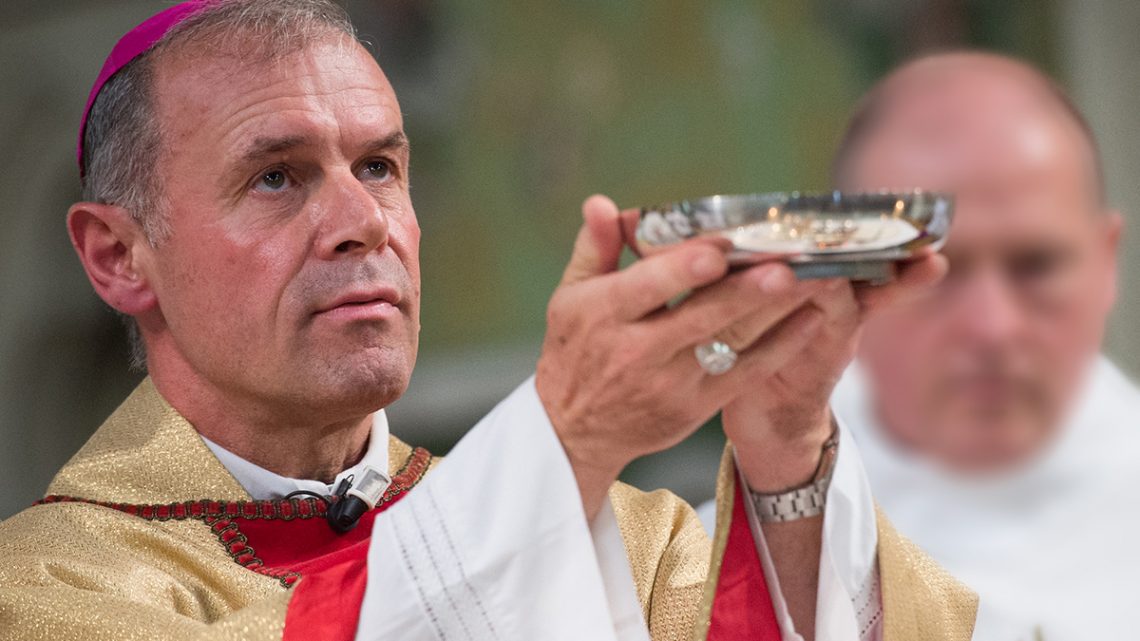Bishop Paul Mason, one of the three signatories of the bishops’ statement
Elderly and disabled coronavirus patients have the same right to life-prolonging treatment as others, the bishops of England and Wales have said.
In a statement April 20, the bishops noted that the pandemic had placed immense strain on Britain’s National Health Service (NHS).
“With the escalation of the coronavirus, demand on NHS resources is outstripping supply and those responsible for our care and well-being are facing challenging decisions,” they said.
Nevertheless, they argued, doctors struggling with scarce resources must never decide against treating patients based on factors such as disability or age.
“A decision against offering a certain life-prolonging treatment to an individual must never be a judgement based on the worthwhileness of that person’s life, including their age or other social characteristics, but a pragmatic decision about the likelihood of him/her benefiting from the intervention given their medical condition,” the bishops said.
They added that this principle was enshrined in the NHS Constitution, as well as case law.
“Until the current pandemic, resources have always been allocated according to medical need and benefit to the patient,” they said. “Today this approach must be complemented by maximizing scarce resources for the common good, and so prognosis, and the likelihood of benefit, becomes the overriding criteria.”
The bishops said they had spoken out in response to those expressing concern about whether they or their loved ones would receive life support at a time of “medical rationing.”
“While we would all agree that the allocation of resources must be done as fairly as possible, the criteria of fairness must be clear and shared by us all,” they said. “These principles apply both morally and in the law which governs our expectations and rights on health and social care.”
“As Catholics, our starting point is that we are all made equally in the image of God (CCC 357). Human value is not a measure of our mental or physical capacity, our societal function, our age, our health or of any other qualitative assessment. God made each of us and in so doing gave us all equal dignity and value. This is never lost during sickness or dying.”
The bishops urged those with underlying health conditions to discuss with their families what kind of treatment they would wish to receive.
“Each of us may be presented with clinical scenarios which are both unwelcome and distressing, yet doctors are faced with making the least-worst decisions,” they said. “This approach helps us to focus on the common good.”
“Similarly, Catholics will focus on the benefit of a particular treatment for the person taking into consideration all medical factors. This, again, helps us to focus on the common good of all and best meets the principles of justice and equality.”
The bishops appealed to medical staff to communicate clearly and sensitively with patients and their loved ones.
They added: “We must always be mindful of the spiritual care of patients and their families, as well as of health and social care staff. Our chaplains have a particular role in this regard, but we will all know someone for whom we can pray and offer support.”
The statement was signed by three English bishops: Bishop Richard Moth, chair of the bishops’ conference department for social justice, Bishop Paul Mason, lead bishop for healthcare and mental health, and Bishop John Sherrington, lead bishop for life issues.
More than 124,000 people have contracted COVID-19 in the United Kingdom and more than 16,500 have died as of April 21, according to Johns Hopkins University Coronavirus Resource Center.

